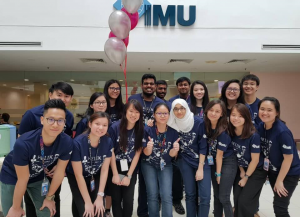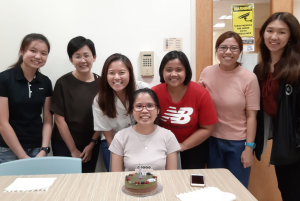[fusion_builder_container hundred_percent=”no” equal_height_columns=”no” menu_anchor=”” hide_on_mobile=”small-visibility,medium-visibility,large-visibility” class=”” id=”” background_color=”” background_image=”” background_position=”center center” background_repeat=”no-repeat” fade=”no” background_parallax=”none” parallax_speed=”0.3″ video_mp4=”” video_webm=”” video_ogv=”” video_url=”” video_aspect_ratio=”16:9″ video_loop=”yes” video_mute=”yes” overlay_color=”” overlay_opacity=”0.5″ video_preview_image=”” border_size=”” border_color=”” border_style=”solid” padding_top=”” padding_bottom=”” padding_left=”” padding_right=””][fusion_builder_row][fusion_builder_column type=”1_1″ layout=”1_1″ background_position=”left top” background_color=”” border_size=”” border_color=”” border_style=”solid” border_position=”all” spacing=”yes” background_image=”” background_repeat=”no-repeat” padding=”” margin_top=”0px” margin_bottom=”0px” class=”” id=”” animation_type=”” animation_speed=”0.3″ animation_direction=”left” hide_on_mobile=”small-visibility,medium-visibility,large-visibility” center_content=”no” last=”no” min_height=”” hover_type=”none” link=””][fusion_text][/fusion_text][fusion_text] After completing my A-levels, it was time for me to decide on my future career, a common problem among adolescents undergoing transition to universities. It was a hard decision as I was facing a dilemma on which programme I should choose.  I came across the term ‘Medical Biotechnology’ which appears foreign to many, as I was looking through the list of programmes offered by IMU. It caught my interest as I was very much interested in biology as well as medicine. It was after many researches that I finally decided to enroll into this programme. I am glad to have chosen this programme as it incorporates the study of technology, biology and medicine, thus paving the way to a wide variety of career choices that reaches out to medical as well as industrial sectors. My interests have ascended throughout my 3 years of studying the Medical Biotechnology at IMU. During the last semester of this programme, we are required to undergo internship training at an external company of our choice. Having gained interests in research, I decided to apply for a position as a research assistant for a duration of 5 months at National Neuroscience Institute (NNI), Singapore which is situated at Tan Tock Seng Hospital. I was fortunate to be accepted as an intern by my external supervisor, Dr Ivy Ho, who is the Principle Investigator of the Molecular Neurotherapeutic Lab (MNL) at NNI. I choose to carry out my internship at NNI because it is a national centre that specialises in neurosciences with the aim to provide and improve patient care as well as function as a platform for research and education in neuroscience studies. As a person who is passionate about being a healthcare personnel, I find NNI a suitable place for the internship as it is situated in a hospital which makes me feel more motivated to contribute to the society through medical research.
I came across the term ‘Medical Biotechnology’ which appears foreign to many, as I was looking through the list of programmes offered by IMU. It caught my interest as I was very much interested in biology as well as medicine. It was after many researches that I finally decided to enroll into this programme. I am glad to have chosen this programme as it incorporates the study of technology, biology and medicine, thus paving the way to a wide variety of career choices that reaches out to medical as well as industrial sectors. My interests have ascended throughout my 3 years of studying the Medical Biotechnology at IMU. During the last semester of this programme, we are required to undergo internship training at an external company of our choice. Having gained interests in research, I decided to apply for a position as a research assistant for a duration of 5 months at National Neuroscience Institute (NNI), Singapore which is situated at Tan Tock Seng Hospital. I was fortunate to be accepted as an intern by my external supervisor, Dr Ivy Ho, who is the Principle Investigator of the Molecular Neurotherapeutic Lab (MNL) at NNI. I choose to carry out my internship at NNI because it is a national centre that specialises in neurosciences with the aim to provide and improve patient care as well as function as a platform for research and education in neuroscience studies. As a person who is passionate about being a healthcare personnel, I find NNI a suitable place for the internship as it is situated in a hospital which makes me feel more motivated to contribute to the society through medical research.  Throughout my internship at MNL, I was given the opportunity to carry out many activities in order to complete my project which includes dealing with bacteria, RNA, DNA and protein, cell and tissue culture, as well as immunohistochemistry staining. As it was my first time being attached to a different lab, it was definitely challenging as I had to adapt to the new environment after being so used to the laboratory at IMU. Although I had to start from scratch at the new lab, I felt that the training that I have received at IMU have definitely incorporated me with the essential knowledge and skills to understand and improve on the techniques and systems that I was to use to complete the tasks assigned to me by my external supervisor. In addition to that, I am required to attend lab meetings in which I did not find any difficulties in presenting my findings to my supervisor and colleagues after being trained to do many presentations throughout my studies at IMU.
Throughout my internship at MNL, I was given the opportunity to carry out many activities in order to complete my project which includes dealing with bacteria, RNA, DNA and protein, cell and tissue culture, as well as immunohistochemistry staining. As it was my first time being attached to a different lab, it was definitely challenging as I had to adapt to the new environment after being so used to the laboratory at IMU. Although I had to start from scratch at the new lab, I felt that the training that I have received at IMU have definitely incorporated me with the essential knowledge and skills to understand and improve on the techniques and systems that I was to use to complete the tasks assigned to me by my external supervisor. In addition to that, I am required to attend lab meetings in which I did not find any difficulties in presenting my findings to my supervisor and colleagues after being trained to do many presentations throughout my studies at IMU.
IMU has also helped to train my soft skills such as critical thinking skills, problem solving skills as well as time management skills. I felt truly grateful as I find that these skills are crucial in the working environment, especially when it comes to research. Besides that, the workload that I often have to go through throughout the semesters has indeed trained me to handle stress and work more efficiently.
After my internship at NNI, my passion for research has grown indefinitely and I would very much love to pursue a career in research, particularly in the healthcare sector. [/fusion_text][fusion_imageframe image_id=”39101″ style_type=”none” stylecolor=”” hover_type=”none” bordersize=”15″ bordercolor=”#ffffff” borderradius=”” align=”none” lightbox=”no” gallery_id=”” lightbox_image=”” alt=”” link=”” linktarget=”_self” hide_on_mobile=”small-visibility,medium-visibility,large-visibility” class=”” id=”” animation_type=”” animation_direction=”left” animation_speed=”0.3″ animation_offset=””]https://www.imu.edu.my/media/2020/01/Graduation.jpg[/fusion_imageframe][fusion_text]
Written and photos by Stephanie Loo Jyet Quan.
[/fusion_text][/fusion_builder_column][/fusion_builder_row][/fusion_builder_container]

